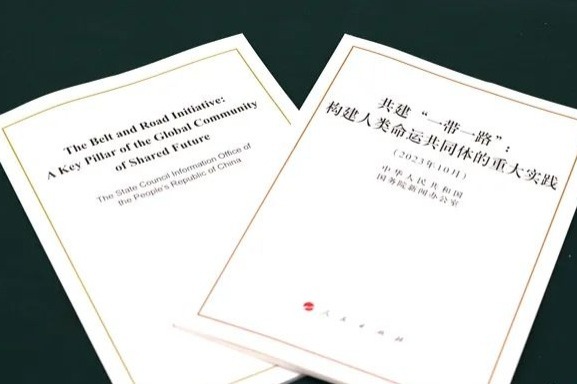盘点2013十大网络流行词英文版
2013-10-12 13:48

“不明觉厉、十动然拒、喜大普奔、人艰不拆、说闹觉余、累觉不爱、火钳刘明、细思恐极、男默女泪、不约而同”,2013年出现的这些网络流行词用英语怎么说?来看看网友整理出来的中文以及英文释义及例句:
2013十大网络流行词英文版:
1. 不明觉厉
中文释义:虽然不明白对方在说/干什么,但觉得很厉害的样子。
英文:
1. I don't quite get it, but I think you are really terrific。
2. I don't know what you said, but it seems you are great。
2. 十动然拒
中文释义:十分感动,然后拒绝。
英文:She was deeply moved but still rejected him.
3.喜大普奔
中文释义:喜闻乐见、大快人心、普天同庆、奔走相告
英文:The news is so exhilarating that everyone is celebrating and spreading it to the rest of the world.
示例:告诉你一个喜大普奔的消息,滨河路大塞车啊。Example: Here is the news for celebration: Binhe Road is completely jammed up.
4. 人艰不拆
中文释义:人生已经如此的艰难,有些事情就不要拆穿。
英文:
1. Life is so hard that some lies are better not to be exposed.
2. Life is so hard. Don't hurt me with the truth.
5. 说闹觉余
中文释义:其他人有说有笑、有打有闹,感觉自己很多余。
英文:While the other people are having a good time taking and frolicking, I fell myself an unwelcome outsider.
示例:她都没请我,听说请的都是高富帅、白富美,我自己去了,不是说闹觉余?Example: She didn't invite me. I hear that all those she invited are rich, pretty and posh. If I go uninvited, wouldn't I feel unwelcome?
6. 累觉不爱
中文释义:很累,感觉自己不会再爱了。
英文:Too tired to love.
示例:我很累,感觉自己不会再爱了。Example: I'm very tired. I don't think I can love again。
7. 火钳刘明
中文释义:“火前留名”,在这个帖子火之前,留下自己的名字。
英文:Leave a message/comment before it becomes a top/hot tweet.
8. 细思恐极
中文释义:仔细想想,觉得恐怖至极。
英文:
1. When you think it over, you will feel horrible.
2. When you think it over, it is horrible.
9. 男默女泪
中文释义:男生看了会沉默,女生看了会流泪。
英文:
1.Men would stop talking and women would shed tears when they see this.
2.This term is used in various contexts to express feelings of sympathy, sadness, surprise or awkwardness.
示例:
A:昨天逛街看上了一件衣服,店员看了我几眼然后说,对不起,本店没有你可以穿的尺码。I went shopping yesterday. When I wanted to buy a dress, the shop assistant looked me up and down, then said: "Sorry, we don't have your size in the shop."
B:男默女泪。My sympathy goes out to you.
10. 不约而同
中文释义:很久没有人约,而变成了同性恋。
英文:He becomes a gay (lesbian) after such a long time without dating.
相关阅读
李克强《金融时报》署名文章——《中国将给世界传递持续发展的讯息》
Hold his breath for her to apologize
(来源:沪江英语 编辑:yaning)

















 英语点津微信
英语点津微信 双语小程序
双语小程序